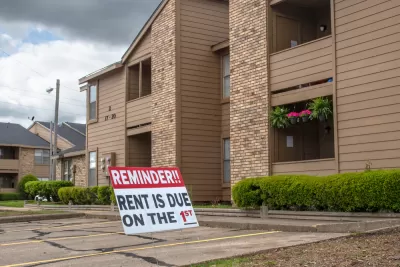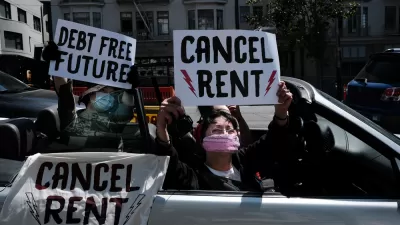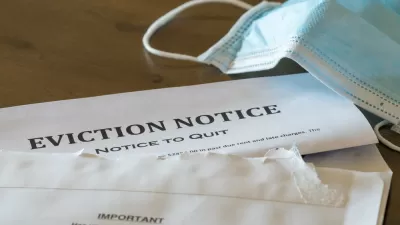Another month, another rental payment crisis for millions of Americans.

Henry Louis Taylor, Jr., a professor of urban and regional planning at the University of Buffalo, is featured in an ABC News article about the ongoing risk of mass evictions as the country's millions of renters collides with tens of millions of new unemployment claims across the country.
Taylor said that "federal and statewide eviction moratoriums are based on COVID-19 timetables that are 'too short' and don’t consider predictions from medical experts that the pandemic could persist into the fall and beyond, as public health officials have suggested," according to the article, written by Deena Zaru.
"More than 30 million Americans have filed for unemployment insurance since the COVID-19 crisis hit the U.S. in March, and despite a range of temporary federal and state eviction moratoriums, some Americans are still being served eviction notices amid a public health crisis that requires many people to stay at home," according to Zaru.
In April, a Planetizen article detailed the looming eviction crisis, as state, local, and national policies have only so far deferred the housing crisis. Since then, progressive members of Congress have pushed for more thorough forms of rent relief, while lawyers for landlords have achieved legal success against local eviction moratoriums.
Emily Benfer, a professor of clinical law and the director of Columbia University’s Health Justice Advocacy Clinic, is also quoted in the ABC News article, predicting a major spike in evictions simultaneous to the country finally achieving a decline in coronavirus infections.
As reported in a separate article by Marisa Peñaloza, the American Civil Liberties Union recently sent a letter to state governments asking for action to stave off mass evictions once eviction moratoriums end.
FULL STORY: 'Mass evictions' on the horizon as US confronts coronavirus housing crisis: Advocates

Planetizen Federal Action Tracker
A weekly monitor of how Trump’s orders and actions are impacting planners and planning in America.

Chicago’s Ghost Rails
Just beneath the surface of the modern city lie the remnants of its expansive early 20th-century streetcar system.

San Antonio and Austin are Fusing Into one Massive Megaregion
The region spanning the two central Texas cities is growing fast, posing challenges for local infrastructure and water supplies.

Since Zion's Shuttles Went Electric “The Smog is Gone”
Visitors to Zion National Park can enjoy the canyon via the nation’s first fully electric park shuttle system.

Trump Distributing DOT Safety Funds at 1/10 Rate of Biden
Funds for Safe Streets and other transportation safety and equity programs are being held up by administrative reviews and conflicts with the Trump administration’s priorities.

German Cities Subsidize Taxis for Women Amid Wave of Violence
Free or low-cost taxi rides can help women navigate cities more safely, but critics say the programs don't address the root causes of violence against women.
Urban Design for Planners 1: Software Tools
This six-course series explores essential urban design concepts using open source software and equips planners with the tools they need to participate fully in the urban design process.
Planning for Universal Design
Learn the tools for implementing Universal Design in planning regulations.
planning NEXT
Appalachian Highlands Housing Partners
Mpact (founded as Rail~Volution)
City of Camden Redevelopment Agency
City of Astoria
City of Portland
City of Laramie




























